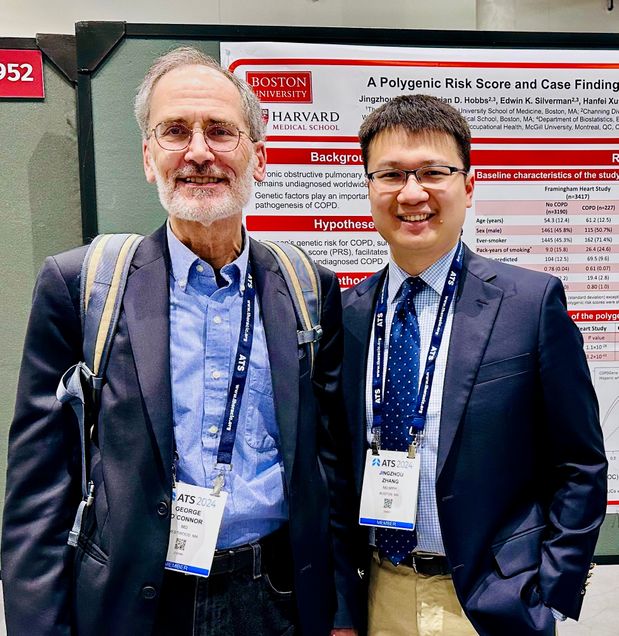Genetic Risk Improves Identification of Undiagnosed COPD Beyond Conventional Case-Finding

Jingzhou Zhang, M.D., M.P.H., senior pulmonary and critical care fellow, explored the role of genetic risk in identifying undiagnosed chronic obstructive pulmonary disease (COPD). COPD, a highly prevalent condition and a leading cause of morbidity and mortality, often remains undiagnosed. Traditional case-finding approaches that rely on conventional risk factors and respiratory symptoms have been shown to improve COPD diagnosis and clinical outcomes. However, while genetic risk significantly contributes to COPD susceptibility, its role in guiding spirometry testing and identifying undiagnosed COPD cases has been unclear. Dr. Zhang and colleagues conducted a cross-sectional analysis using data from two cohorts: the Framingham Heart Study, which includes community-dwelling adults, and the COPDGene study, which includes individuals with a history of smoking. Their analysis demonstrated that adding a COPD polygenic risk score—a summary of a person’s genetic risk for COPD—to a conventional case-finding questionnaire improved discrimination performance in both cohorts and classification of COPD cases in the Framingham Heart Study. These findings suggest that incorporating a COPD polygenic risk score into case-finding strategies may offer additional clinical value in detecting undiagnosed cases in the general population, which needs to be confirmed in prospective studies. This research, led by Dr. Zhang and supervised by Drs. George O’Connor, Michael Cho, and Matthew Moll, represents a collaborative effort between the BU Pulmonary Center, the Channing Division of Network Medicine at Brigham and Women’s Hospital, and other institutions. The findings were recently published as an Original Investigation in JAMA.